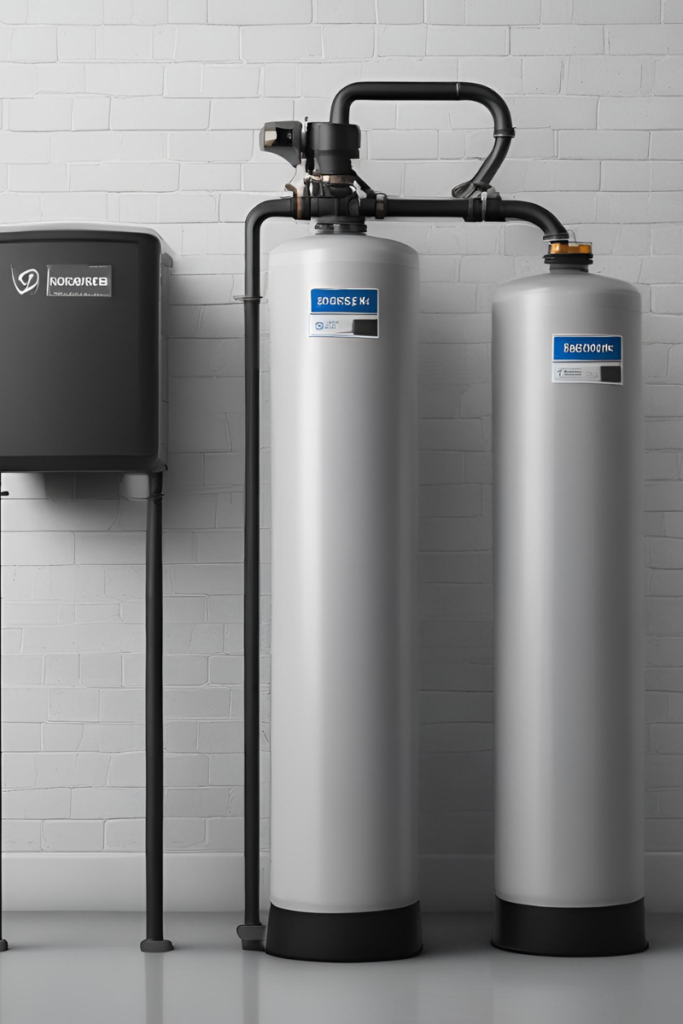Introduction
Water is an essential part of our daily lives, from cooking and cleaning to bathing and drinking. However, many homeowners face a common challenge: hard water.
Hard water, which contains high levels of minerals like calcium and magnesium, can create numerous problems in your home. From clogged pipes to reduced appliance efficiency, the effects of hard water are pervasive.
This is where a water softener can make a world of difference. In this blog post, we will explore how to choose the best water softener for your house, ensuring you can improve your home’s water quality and protect your plumbing and appliances.
Understanding Water Softeners
What are Water Softeners and How Do They Work?
A water softener is a device designed to remove hardness-causing minerals from your water supply. It operates through a process called ion exchange, where calcium and magnesium ions are exchanged for sodium or potassium ions. The softened water is then free from the minerals that cause scaling and buildup.

Different Types of Water Softeners Available
There are several types of water softeners to choose from, each with its own set of benefits:
- Salt-Based Ion Exchange Softeners: These are the most common and effective types. They use sodium or potassium chloride to replace the hardness minerals.
- Salt-Free Water Softeners: Instead of removing minerals, these systems condition the water to prevent scaling. They are a good option for those concerned about salt intake or environmental impact.
- Dual-Tank Softeners: These systems come with two tanks, ensuring a continuous supply of soft water even during regeneration cycles.
- Magnetic and Electronic Descalers: These devices use magnets or electrical fields to alter the properties of hardness minerals, preventing them from forming scale.
Signs You Need a Water Softener
Common Signs of Hard Water in a Home
Hard water can manifest in various ways. Here are some common signs that you might need a water softener:
- Soap Scum and Residue: If you notice soap scum in your sinks or bathtubs, it could be due to hard water.
- Stiff Laundry: Clothes washed in hard water often feel rough and wear out faster.
- Mineral Buildup: Look for white, crusty deposits around faucets and showerheads.
The Impact of Hard Water on Appliances and Plumbing
Hard water doesn’t just affect visible surfaces; it also impacts your appliances and plumbing:
- Reduced Efficiency: Appliances like dishwashers and washing machines can become less efficient due to mineral buildup.
- Shortened Lifespan: Hard water can cause premature wear and tear on appliances, leading to costly repairs or replacements.
- Clogged Pipes: Over time, mineral deposits can accumulate inside pipes, reducing water flow and increasing the risk of clogs.
Factors to Consider When Choosing a Water Softener
Water Hardness Levels in Your Area
Before choosing a water softener, it’s essential to know the hardness level of your water. You can test your water using a home testing kit or consult your local water supplier for information. The higher the hardness level, the more robust a system you’ll need.
Household Water Usage and Family Size
Consider the water usage in your household. A larger family or a home with high water consumption will require a system with a higher capacity. Look for a water softener that can handle your daily water usage without frequent regeneration cycles.
Types of Water Softeners and Their Maintenance
Different water softeners come with varying maintenance requirements:
- Salt-Based Softeners: These systems require regular replenishment of salt or potassium.
- Salt-Free Softeners: Generally, these systems require less maintenance, as they don’t need salt or frequent regeneration.
- Dual-Tank Systems: While effective, they may require more complex installation and maintenance.
Eco-Friendly Options
Exploring Eco-Friendly Water Softener Models
For environmentally conscious consumers, there are eco-friendly water softener options available:
- Salt-Free Softeners: These systems eliminate the need for salt, reducing the environmental impact.
- High-Efficiency Softeners: Some systems are designed to use less salt and water during regeneration cycles.
- Portable Water Softeners: Ideal for smaller households or RVs, these compact models are efficient and eco-friendly.
The Environmental Impact of Different Water Softeners
Traditional salt-based softeners can have an environmental impact due to the discharge of salt brine. However, newer models are designed to minimize this impact by using less salt and water. Additionally, salt-free systems and descalers offer a greener alternative without compromising water quality.
Installation and Maintenance
DIY Installation vs. Professional Installation
When it comes to installing a water softener, you have two main options:
- DIY Installation: Some water softeners come with detailed instructions for DIY installation. This can save you money but requires some plumbing knowledge and tools.
- Professional Installation: For a hassle-free experience, consider hiring a professional plumber. They can ensure proper installation and setup, giving you peace of mind.
Tips for Maintaining Your Water Softener
Proper maintenance is crucial to ensure your water softener’s longevity and efficiency:
- Regularly Check Salt Levels: For salt-based systems, check and refill the salt regularly to keep the system running smoothly.
- Clean the Brine Tank: Periodically clean the brine tank to prevent buildup and improve efficiency.
- Inspect for Leaks: Regularly inspect the system for any leaks or malfunctions and address them promptly.
Final Thoughts
Choosing the right water softener for your home is an investment in your comfort, convenience, and the longevity of your plumbing and appliances.
By understanding your water hardness levels, household needs, and the different types of water softeners available, you can make an informed decision that suits your lifestyle and budget.
Remember, improving your home’s water quality is not just about immediate benefits but also long-term savings and environmental responsibility. Take the first step towards better water quality today and explore the options available to you.